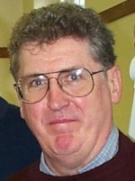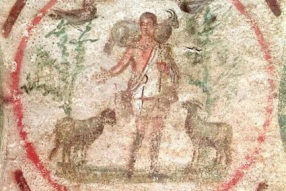Oceans are deteriorating rapidly… and we are hardly noticing

Fr Seán McDonagh, SSC
Some weeks ago I wrote an article entitled, 'Requiem for The Great Barrier Reef.' The article was based on an earlier article in The Guardian by Dr Timothy Flannery, an Australian scientist and environmental commentator. The article began with a very blunt statement: “the Great Barrier reef is sick.” A 2012 study found that half of the corals composing the reef are already dead as a result of decades of pesticide runoff, soil erosion caused by land clearing, coral bleaching as the surrounding water become warmer and the activities of predatory starfish. Flannery went on to argue that the opening of a massive Charmicheal coal mine 400 kilometres from the Great Barrier Reef could kill the reef.
But the plunder and destruction of the oceans is not confined to the Great Barrier Reef. In a long article in The Irish Examiner, entitled DEEP ENDS; What rapid change means for our seas, Alex Renton describes his experience of what is happening to the sea during the past few decades. He describes a visit to the great halls of La Boqueria, Barcelona’s central fish market. Each day it is crowded with tourists and cooks who specialize in cooking fish. For Renton the place has something of a sacral dimension. “The chief shrines are the fish counters, where thousands of dead sea creatures, making up dozens of species, gleam pink and gray on mounds of ice. But to many ocean scientists this is not a display of the ocean’s bounty — it is a museum. By the end of this century, many of these animals may be history, due to man’s reckless abuse of the planet. As we keep dumping greenhouse gases into the air, the oceans keep sucking them up, making the waters deadly to their inhabitants.”
Renton counted 10 different types of bivalves on Boqueria’s fish stands. These included clams, oysters and muscles. All of these creatures use calcium carbonate to make their different shells so if the acidification of the oceans continues and increases all of these creatures will be adversely affected and some may not make it at all. This acidification due to producing more carbon dioxide is believed by many scientists as the fastest change in the ocean’s chemistry in the past 300 years.
The acidification which is due to increased production of carbon dioxide is believed by many scientists to be bringing about the fastest change in the ocean’s chemistry in 300 million years.
On the crushed ice in Boqueria fish market sit a dozen kinds of finned creatures that the Spanish love — monkfish, hake, sardines and tuna. The Spaniards eat more fish than anyone else in Europe. The effects of changing ocean chemistry on fish health, longevity and reproduction is not yet certain. But, even now, many species on the Boqueria stalls are also on one or more European ‘at-risk’ lists: under threat because of over-fishing or changes in the chain of food that supplies them, or from the bigger threat of the changing ocean biogeochemistry.
DEAD ZONES
The ocean’s biogeochemistry is a relatively new idea and is not very well understood either by the public or even policy makers. In many parts of the ocean, often at the mouth of a river one finds Dead Zones. The largest Dead Zone in the United States is located off the coast of Louisiana and Texas. The Mississippi River which drains more than 40 percent of continental United States, dumps almost 2 million tons of nitrogen and phosphorus into the ocean causing vast blooms of algae which the water of oxygen. As a result most marine creatures die.
Similar things are happening in the Baltic Sea. Nutrient rich run-off has created dead zones. “A third of the marine life in that sea, which once fed all of Northern Europe, is gone and may be beyond hope of recovery.”
“There’s a profound game-changing event going on in the life of the sea,” says Callum Roberts, a professor of marine conservation at the University of York, England. “The fact is that changes in alkalinity are going to cause massive reorganisation of marine life, impacts on marine food webs, productivity, all sorts of things. We’re heading for a car crash here.” Many of these risks are caused by one of the world’s most pressing problems: climate change.
Fr Sean McDonagh is a Columban Creation Theologian, based in Ireland.


















